Archive
2021
KubaParis
Corporate Realism
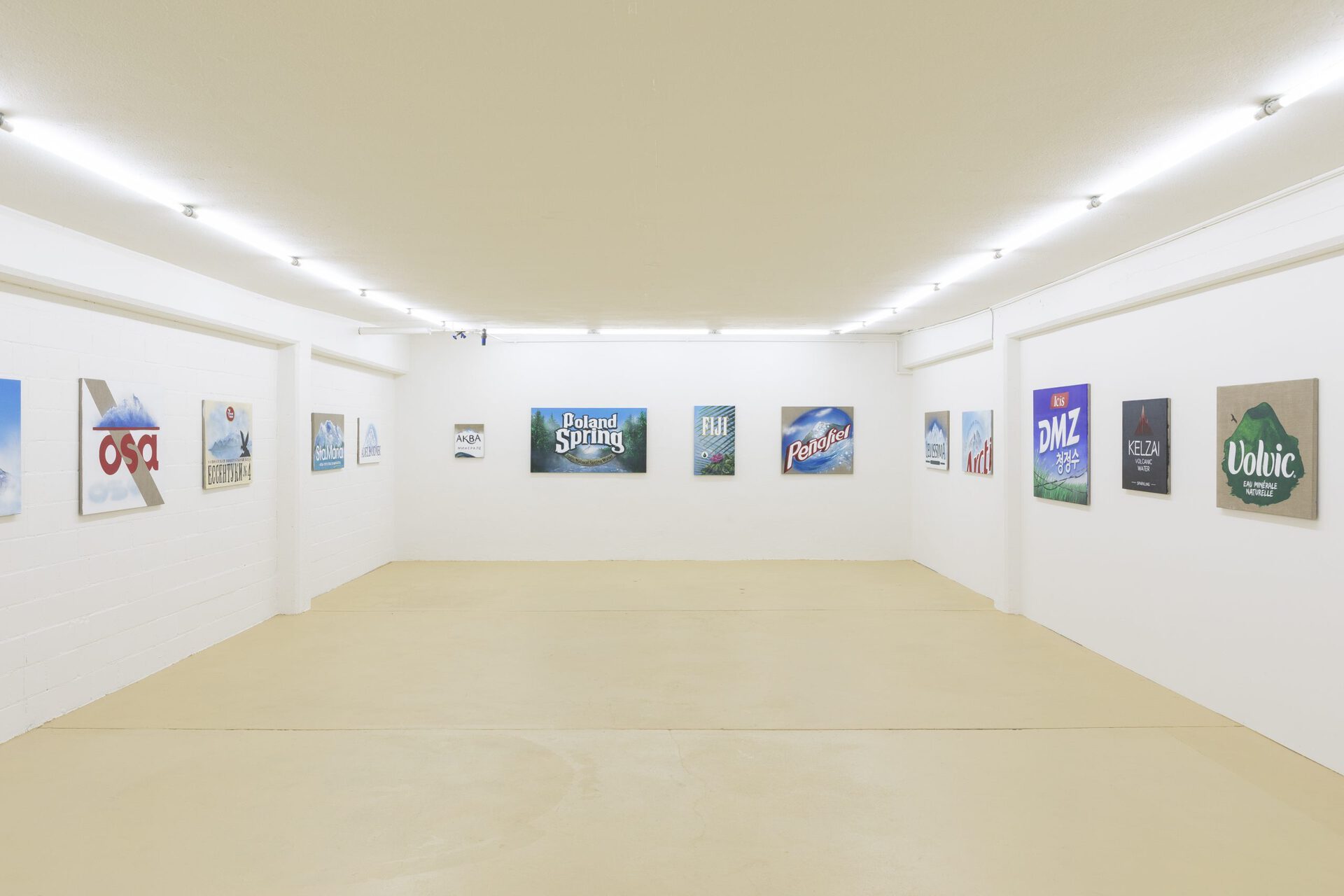
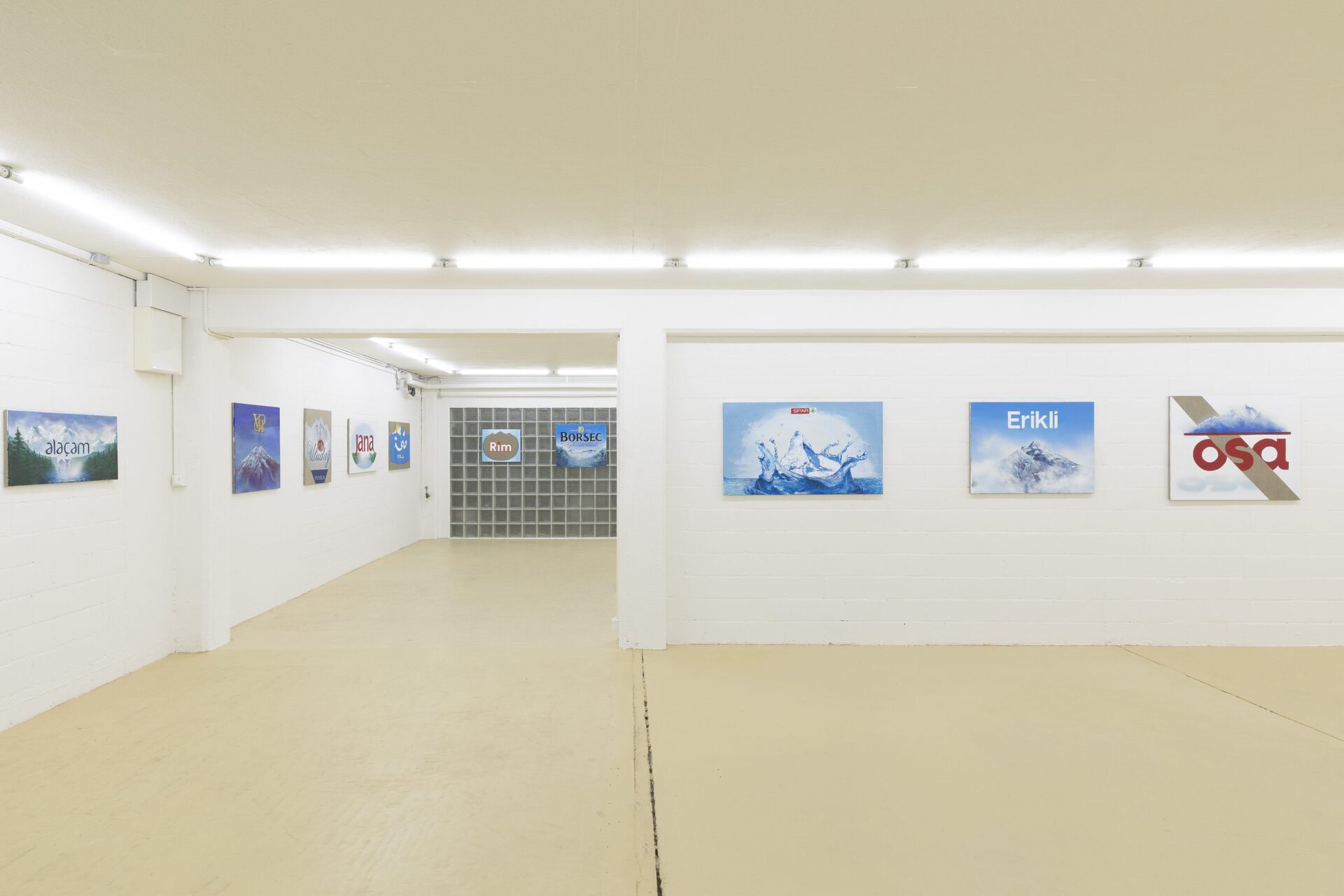
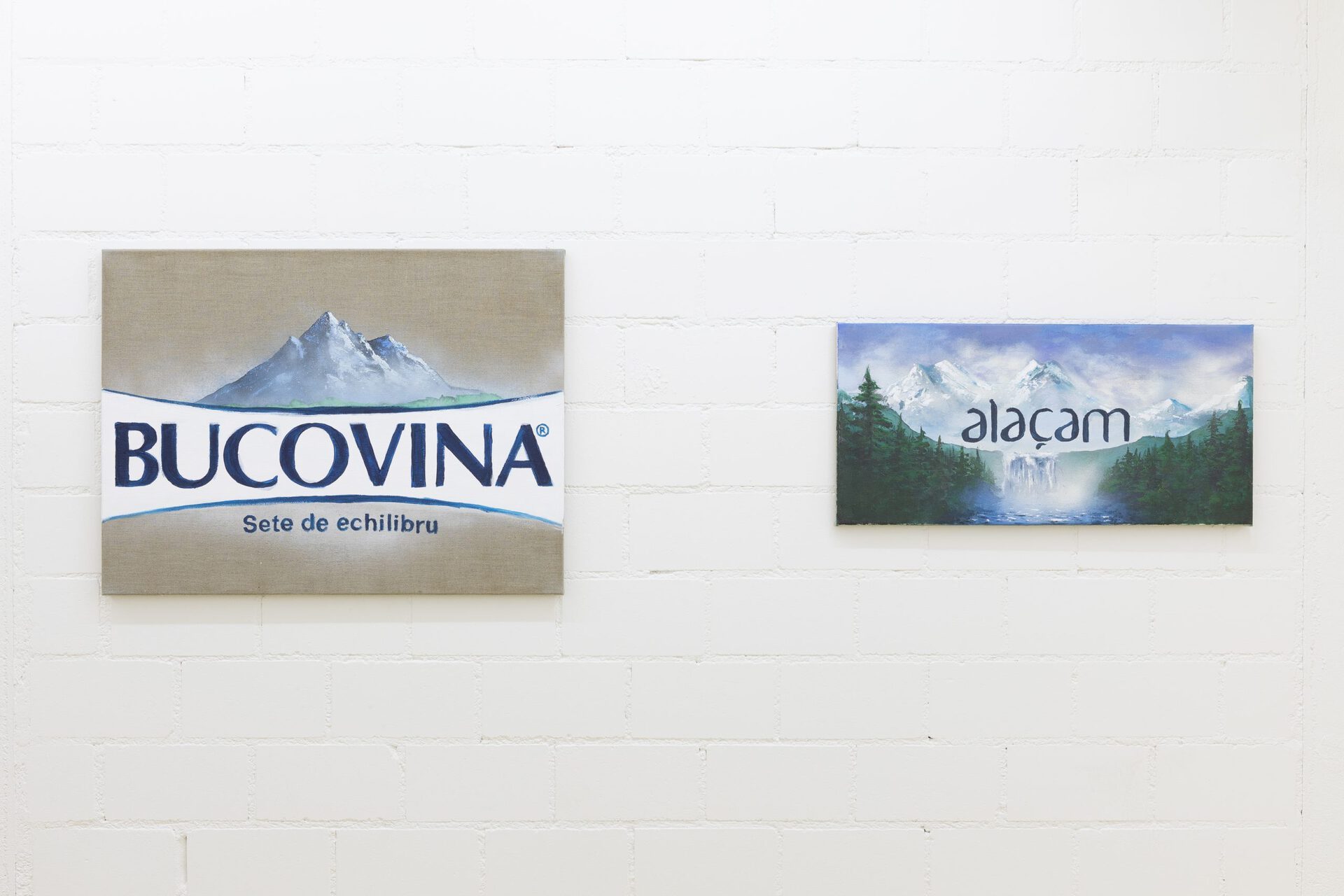
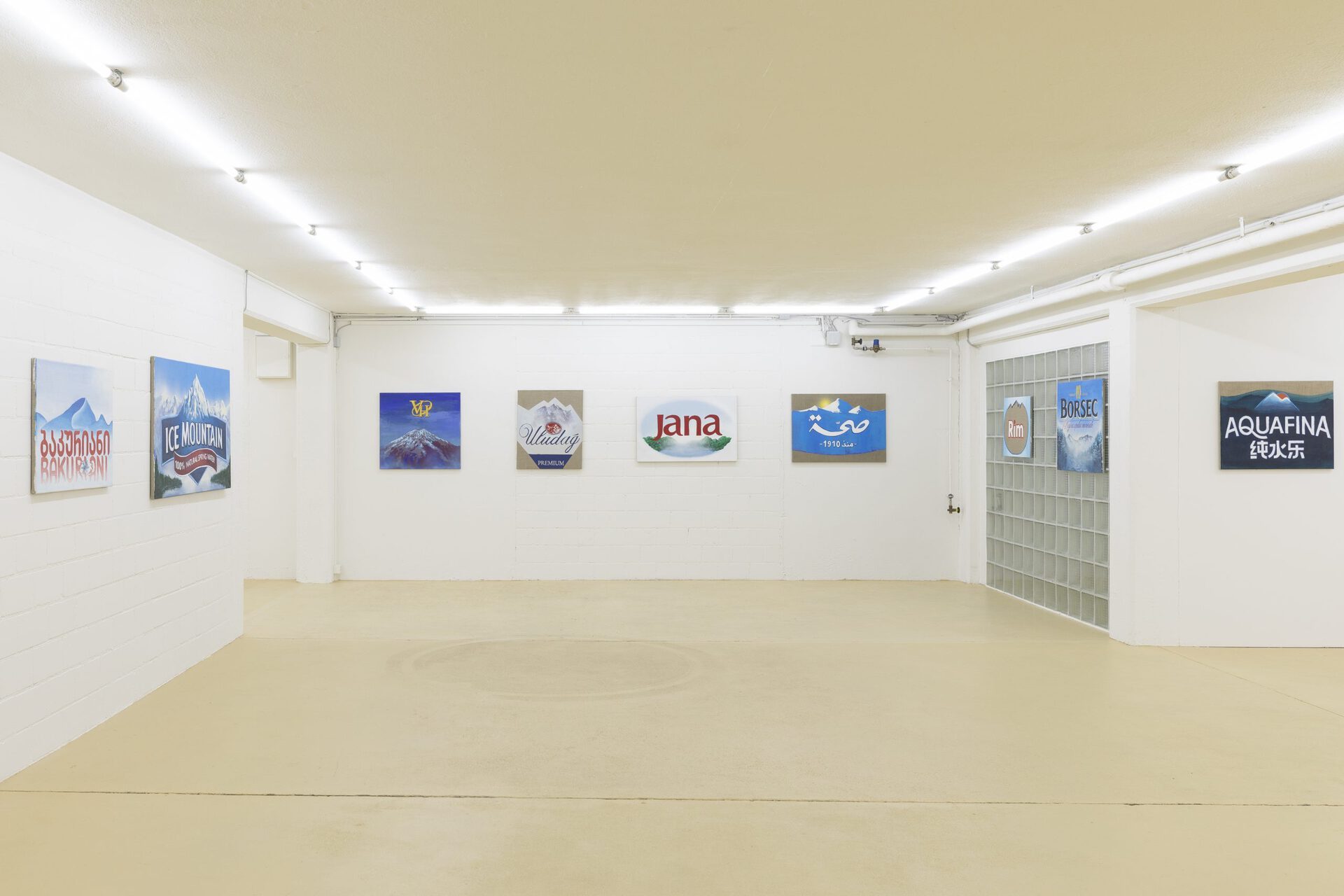
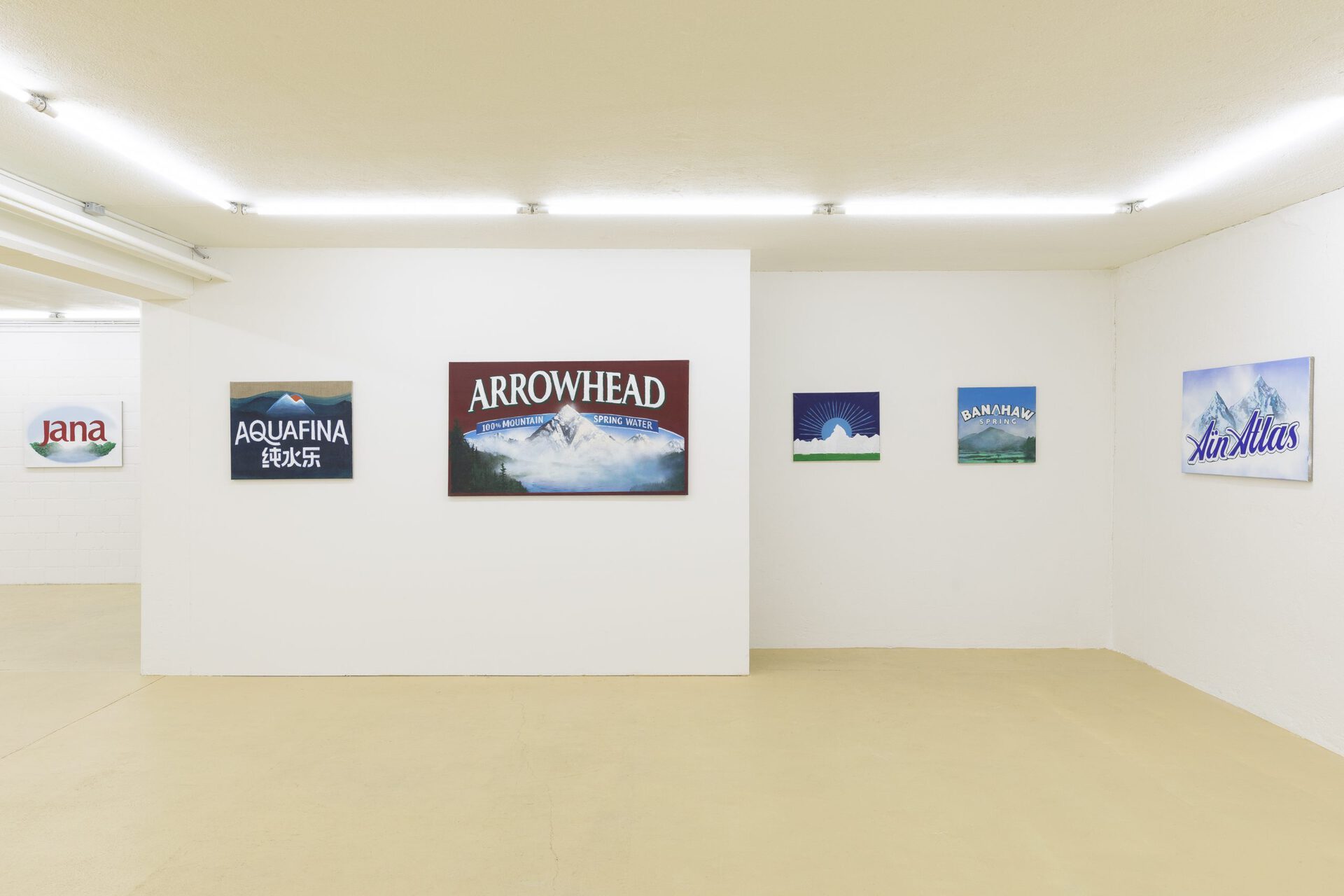
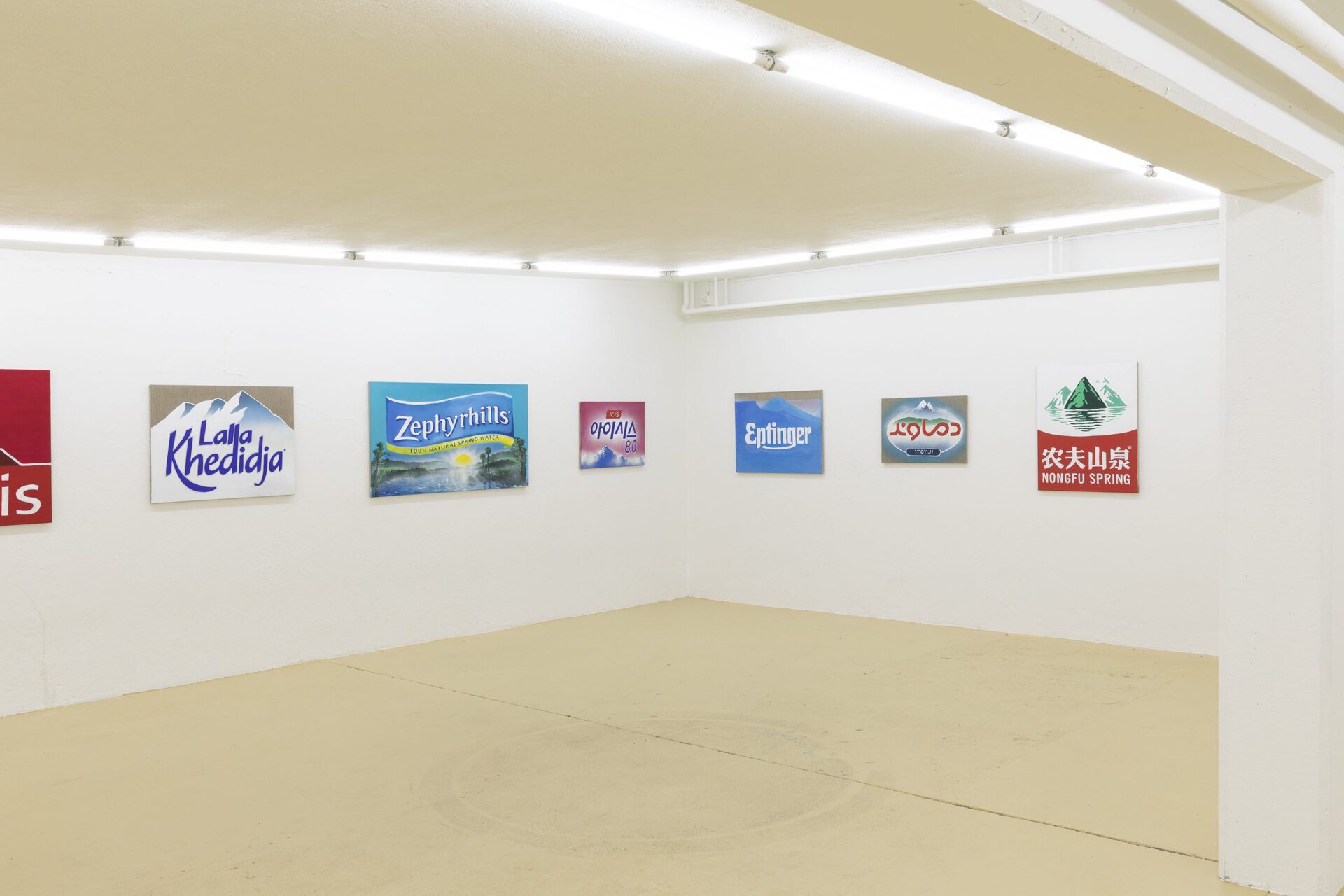
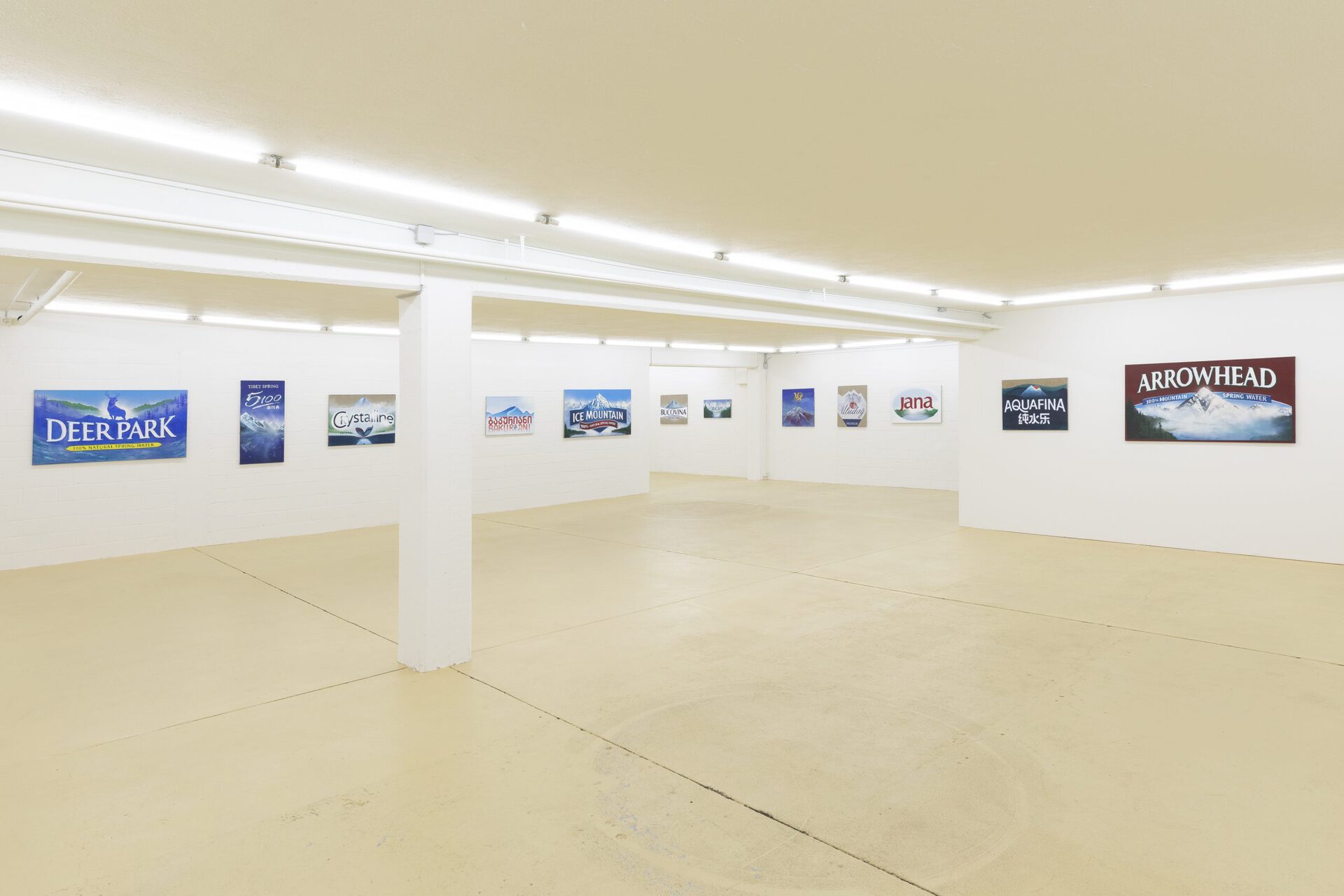
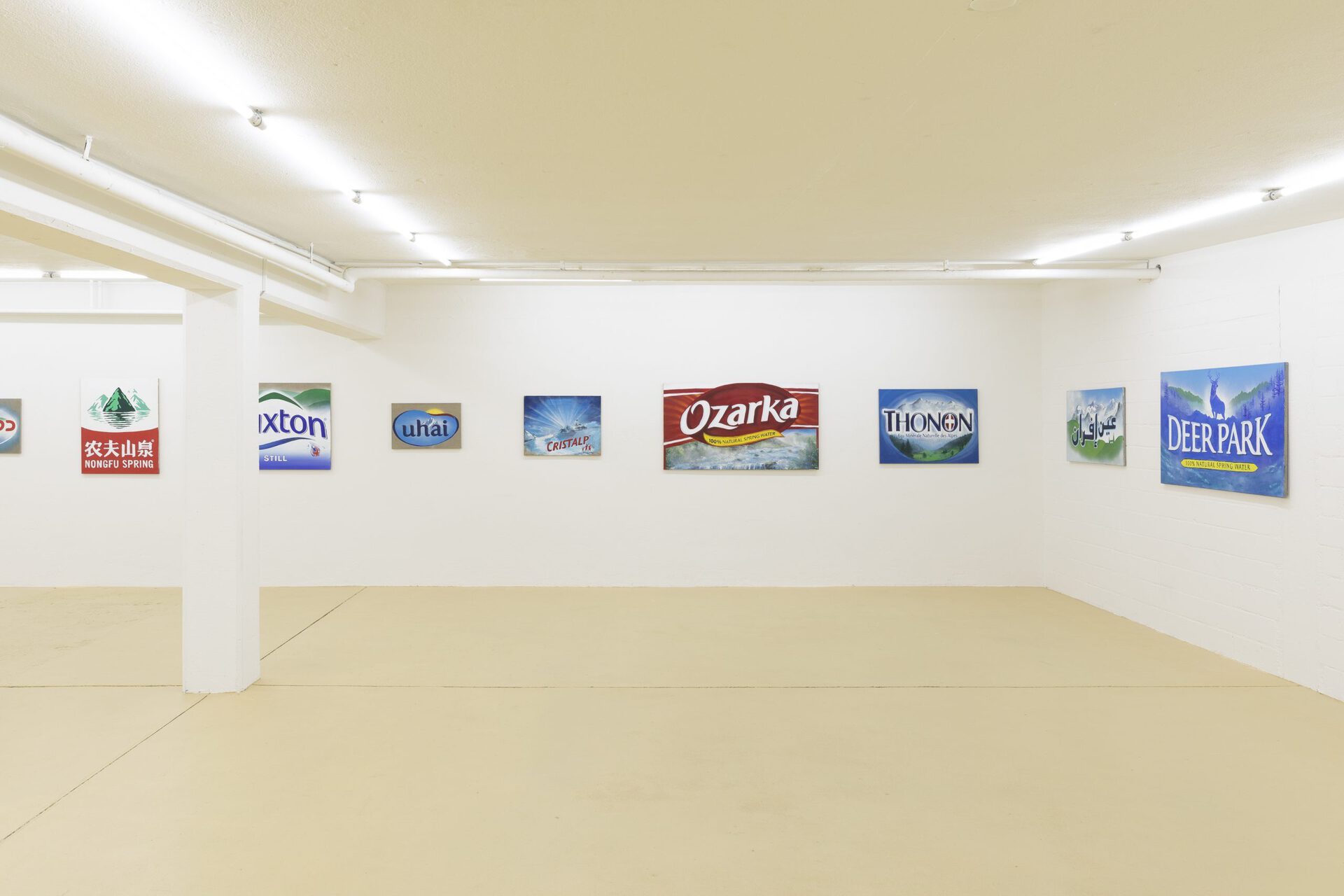
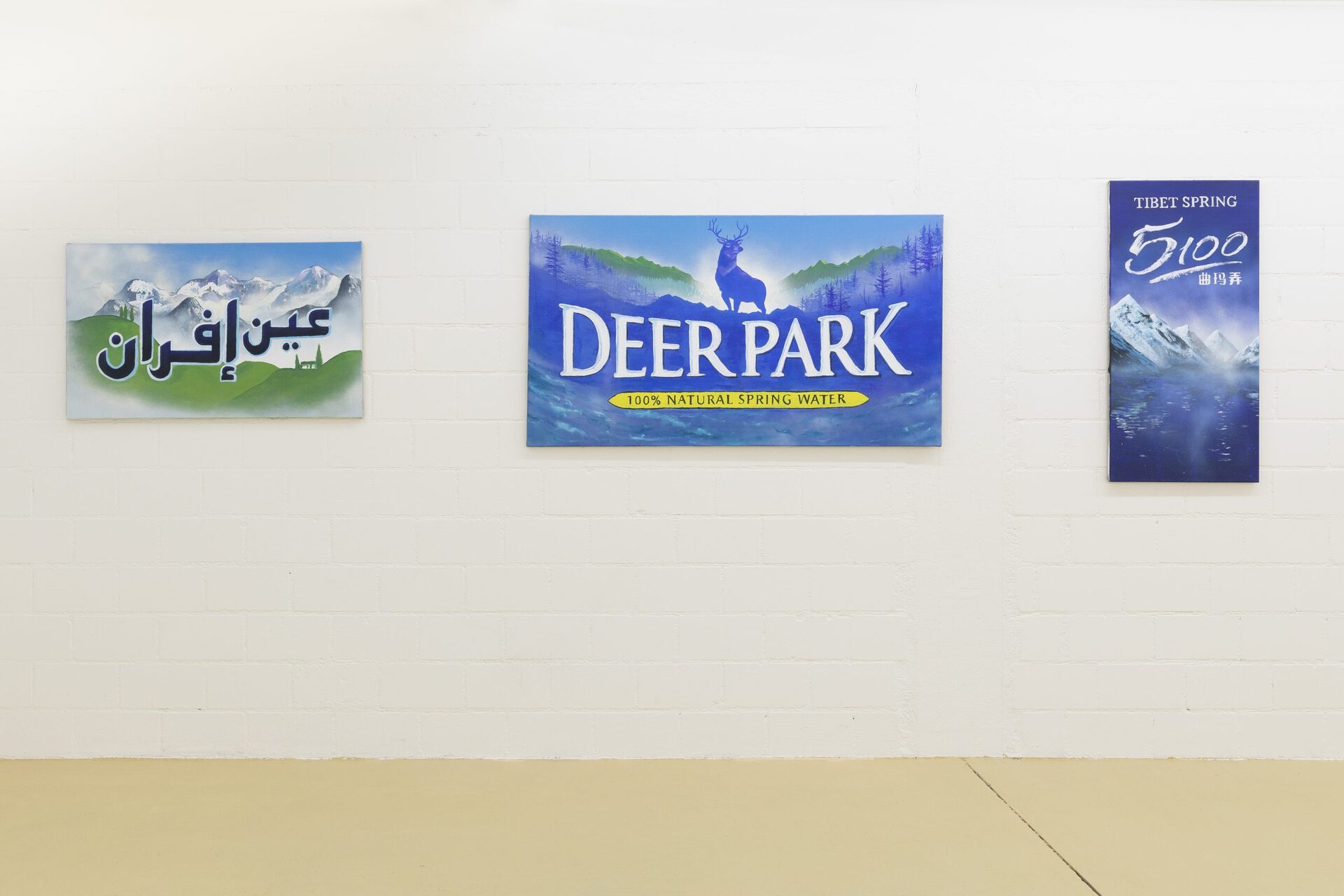
Location
unanimous consentDate
28.02 –17.04.2021Curator
unanimous consent and the artistPhotography
Michal Florence SchorroSubheadline
Thomas Moor *1988, Swiss artist, lives and works in Zurich. Master's degree in Fine Arts in Zurich and Geneva, degree MFA Work. Master's degree at HEAD Geneva in summer 2018, since then freelance artist and currently studio scholarship at the Binz39 Foundation in Zurich. Thomas Moor is concerned with how ideas become goods, how markets create traditions, how logistics create strategies and how language adapts. In his work method he tries to diversify and to remain amateurish, whereby he has mainly been painting in recent times. Here and there his work as an artist merges with curating or hosting. https://www.thomasmoor.net/Text
the scent of a flower
the babbling of the brook
the rustling of the mouse
a pine forest
Landscape
It certainly is a privilege to access it as an untargeted experience of nature. As a fabric, a material with physical and metaphorical qualities. Taking a stroll in it, contemplating oneself; dissolving in it or reflec- ting oneself. To feast on its wordlessness.
Landscape.
The farmer may recognize in it the fertility of the soil, the commuter the way to a destination, the real estate mogul the potential for living space, the geostrategist the location of resources.
Thomas Moor spent two years painting logos and labels of mineral water brands from all over the world. He spent two years looking at landscape through the lens of the water advertising industry, brushing it onto canvas and thus humorously revealing an eco-territorial perspective on it.
Would we say Moor was ‚painting landscape‘ during this period?
And would we claim that the depiction of landscape through the painting of countless logos and labels was ‚realistic‘?
In a 1921 essay, a man named Roman Jakobson attempted a definition of ‚realism‘ as „a current of art with the aim of rendering reality as unadulterated as possible by striving for maximum probability.“ According to his notion, it is not ‚the real‘ that is the reference point of realist art, but those constructs that guide the historical, changing understanding of reality.
Based on this still relevant definition, Corporate Realism brings to mind how our view is shaped through the lens of the advertising industry. Mineral water brands make use of a stylized image of nature through which they metaphorically charge their product – a product which is usually extracted from landscapes entirely different from those depicted. The activities of such corporations subtly shape both our concept of ‚landscape‘ and the actual landscapes themselves from which they draw their resources.
So much ‚realism‘ is hard to bear in itself. The question then is whether we can afford an uninformed and romanticized gaze on landscape at all, provided we want to preserve it – in whichever sense of the word.
Moor‘s activity does not resolve these questions. Instead, he paints his way through them label by label. Too many for it to be the work of a cynic. Rather, one finds in his doing a tireless willingness to grasp the world in its complexity over and over again.
Thomas Moor, *1988 in Aarau, lives and works in Zurich
Ilona Stutz